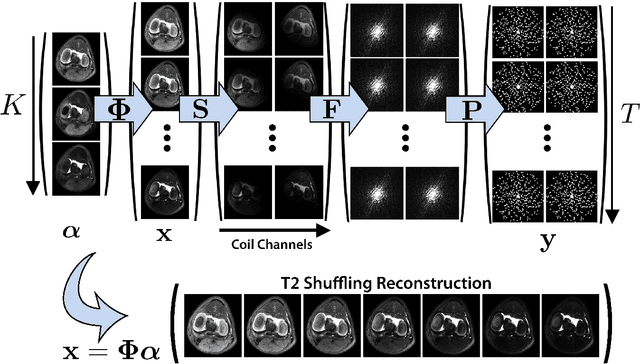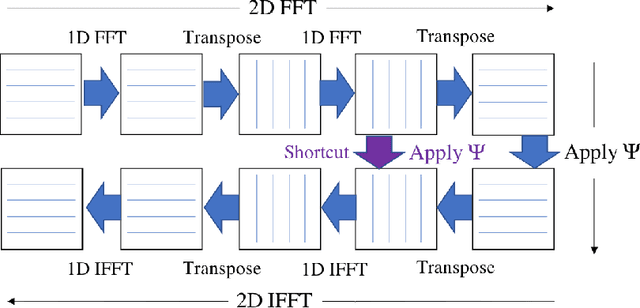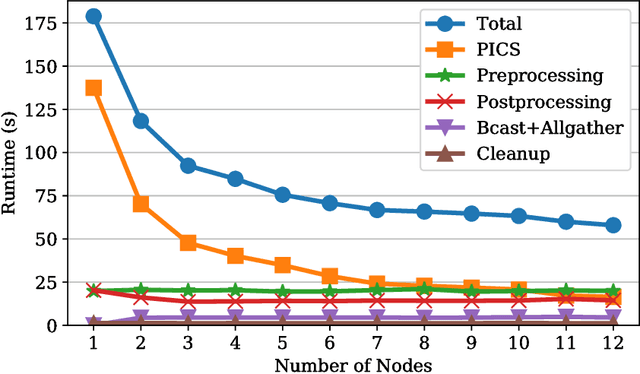Clinically Deployed Distributed Magnetic Resonance Imaging Reconstruction: Application to Pediatric Knee Imaging
Paper and Code
Sep 11, 2018



Magnetic resonance imaging is capable of producing volumetric images without ionizing radiation. Nonetheless, long acquisitions lead to prohibitively long exams. Compressed sensing (CS) can enable faster scanning via sub-sampling with reduced artifacts. However, CS requires significantly higher reconstruction computation, limiting current clinical applications to 2D/3D or limited-resolution dynamic imaging. Here we analyze the practical limitations to T2 Shuffling, a four-dimensional CS-based acquisition, which provides sharp 3D-isotropic-resolution and multi-contrast images in a single scan. Our improvements to the pipeline on a single machine provide a 3x overall reconstruction speedup, which allowed us to add algorithmic changes improving image quality. Using four machines, we achieved additional 2.1x improvement through distributed parallelization. Our solution reduced the reconstruction time in the hospital to 90 seconds on a 4-node cluster, enabling its use clinically. To understand the implications of scaling this application, we simulated running our reconstructions with a multiple scanner setup typical in hospitals.
 Add to Chrome
Add to Chrome Add to Firefox
Add to Firefox Add to Edge
Add to Edge